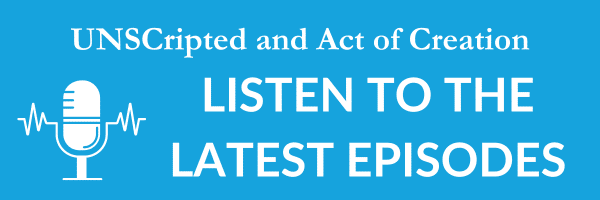
As the world inches closer to catastrophic global heating and vulnerable communities from Mali to Myanmar are already suffering the consequences, the United Nations Refugee Agency has been grappling with the growing role of climate change as a driver of displacement.
In a first for the agency, it has begun considering whether international refugee law might apply to climate migrants to help the UN and others cope with the mounting crisis. Such a shift would open the door to unprecedented legal protections for people uprooted from their home countries due to climate change. But it would need tacit approval from the agency’s biggest financial donor, the United States.
“This [climate crisis] is an emergency unlike those humanity has faced before and will have global and permanent ramifications,” wrote Filippo Grandi, the head of UNHCR, as it’s known, in an email to the agency’s nearly 18,000 employees in April. “It is clear that we must — as individuals and as an organization — do better on the climate front.”
According to the Internal Displacement Monitoring Center, a research institute in Geneva, three out of four of the 41 million new cases of displacement in 2020 were caused by extreme weather, mainly storms, flooding and drought. Many people are displaced two or three times within months. Though the center cautions against overemphasizing the role of global heating as a trigger of extreme weather, it says that “climate change is making disasters more frequent and intense.”
Gradual factors that are projected to become increasingly prevalent, like land degradation and repeated crop failures, also push displacement, as does violent conflict induced by climatic conditions, such as competition for dwindling water sources. Most climate migrants move within their own countries and do not cross international borders.
Grandi’s all-staff email announced the finalization of UNHCR’s first climate strategy, titled the “Strategic Framework for Climate Action,” marking a new phase in how the agency approaches what it calls “the defining crisis of our time.”
“We need to be questioning almost everything that we’re doing and putting it through an environmental lens, a green lens,” said Andrew Harper, the agency’s first climate adviser, in an interview from his home in Geneva. Climate change is a “vulnerability multiplier,” he added, as it magnifies stressors and hits hardest those with the least ability to cope.
The strategy is three-pronged. The largest share is devoted to mitigating the impact of environmental degradation and climate shocks on people vulnerable to displacement. Harper, who formerly led UNHCR’s innovation department, banks on the potential of predictive analytics to anticipate extreme weather and its effects. Among his office’s first initiatives are partnerships on this topic with the Potsdam Institute for Climate Impact Research, a leading environmental organization based in Germany, and other institutes.
“We have to be driving our programs in a very collaborative way down at the community level, [and] identify not only those communities that are already suffering but [also] those ones that are next in line to suffer as the world will invariably warm,” he said. “If we can’t provide protection where people are at the moment, then we’ll have to provide protection to where they move.”
Another part of the strategy is about reducing UNHCR’s own carbon footprint by transitioning to renewable energy, for example, or by revising how work gets done. Harper said, “Do we all need to be traveling to exotic locations around the world to have UN meetings?”
But to some observers, the most noteworthy aspect of the strategy, presenting a stark departure from UNHCR’s approach to date, is the short section on law and policy. It states that international refugee law “may be applicable” to people who flee across borders for climate-related reasons.
“Traditionally, UNHCR . . . has been hesitant to weigh deeply into this issue,” said Kayly Ober, the climate displacement manager at Refugees International, a nonprofit organization, in an interview from Washington, D.C. But UNHCR is now “testing the waters,” she said, and it will be especially attentive to feedback from the US, its largest funder, providing 22 percent of its budget.
Under the 1951 Refugee Convention, the cornerstone of international law in this area, to qualify as a “refugee” and obtain associated legal rights, like protection against deportation, a person or group must have fled their country to avoid “persecution.” The standard legal interpretation of climate change views it as a process, not a conscious agent, which cannot be attributed actions that involve intent, like persecuting. But legal thinking has been trending toward more nuanced views.
This shift culminated in a UNHCR memo in October 2020 on the applicability of refugee law to people displaced across international borders because of climate change.
“If a narrow view is taken of the effects of climate change and disasters, there is a risk that decision-makers may decide that refugee law is inapplicable,” the document says. “People fleeing in the context of the adverse effects of climate change and disasters may have valid claims to refugee status.”
The crux of this new interpretation lies in climate change’s interaction with other factors, so that persecution is not enacted by climate change but results from it. “We shouldn’t just look at climate change as a natural hazard,” Ober said. “It’s a social product: the end result, the impact, is a result of social and governance factors.”
An example of climate-related persecution would be if a government withheld reconstruction aid to a cyclone-struck community because of its inhabitants’ ethnicity or religion. Although the immediate cause of displacement would be the cyclone, the underlying driver would be persecution.
The October 2020 memo also draws attention to the Organization for African Unity Refugee Convention and the Cartagena Declaration, agreements among, respectively, 46 African and 10 Latin American countries, adopted in 1969 and 1984. Under these agreements, a refugee is anyone forced to move across borders due to events “seriously disturbing public order,” which could include climate-related disasters, the memo argues.
“We’re not looking to put in place an expansion of the Refugee Convention,” said Harper of UNHCR, but “to identify where there are existing instruments that may not be fully operational.”
The memo is referenced in the new strategy, bolstering the novel interpretation, Ober said. “I think they [UNHCR] are pushing it as hard as they can,” while navigating “pushback from member states” amid geopolitics hostile to migration.
In its first six months in office, refugee policy under the Biden administration has been “schizophrenic,” Ober said, marked by two U-turns in April and May as to whether to raise the admissions cap from its historic low under President Trump. (The Biden administration reversed course again, on July 27, saying it would keep the limit to the previous government’s number, but later in the day said it expected to increase the cap next month.)
In a far-reaching executive order in February titled “Rebuilding and Enhancing Programs to Resettle Refugees and Planning for the Impact of Climate Change on Migration,” Biden directed US government agencies to draw up “options for protection and resettlement of individuals displaced directly or indirectly from climate change.”
Their report is due on Aug. 3. Possible measures could include instructing UNHCR to treat climate-induced displacement as valid ground for conferring refugee status on candidates for resettlement in the US, Ober said. Such a decision would help build momentum for the new legal interpretation contained in UNHCR’s memo and strategy.
Should this interpretation take hold, it would not be the first time that ideas around who might deserve refugee status have evolved, according to Jeff Crisp, a researcher at Oxford University’s Refugee Studies Center and a former senior UNHCR official.
“There are all kinds of groups of people who have a good chance of claiming refugee status today who would not have been considered 20, 30 or 40 years ago,” he said in an interview, citing LGBTI people and victims of domestic violence as examples. “In that context you couldn’t entirely rule out the refugee concept being extended to people who have been displaced as a result of climate change.”
Citing a study published in the Proceedings of the National Academy of Sciences, Harper of UNHCR asked: “Global temperatures could increase more in the next 50 years than in the previous 6,000 — if that is not a crisis, what is?”
“There’s no excuse for anyone to be surprised about what’s going to be happening in the future,” he added.
Dali ten Hove writes for PassBlue in his personal capacity. He is a reporting officer in the UN peacekeeping mission in the Democratic Republic of the Congo and was the researcher on the memoir of former UN Secretary-General Ban Ki-moon, “Resolved: Uniting Nations in a Divided World.” He also was part of the UN’s 75th-anniversary team. He has worked in peace-building with Cordaid in The Hague and has served on the boards of the UN Associations of the Netherlands and the UK and has consulted for the World Federation of UNAs. He has a master’s degree in international relations from Oxford University.













